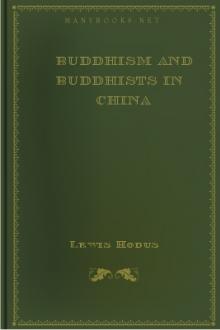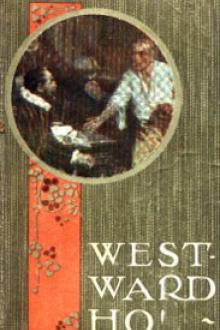Genre History. Page - 13

the finding of references made to the original or to the previous English editions.
I have had much reason to be gratified by the favour with which my translation has been received on the part alike of Dr. Mommsen himself and of the numerous English scholars who have made it the basis of their references to his work.(1) I trust that in the altered form and new dress, for which the book is indebted to the printers, it may still further meet the convenience of the reader.
September 1894.
Notes for Preface
1. It has, I believe, been largely in use at Oxford for the last thirty years; but it has not apparently had the good fortune to have come to the knowledge of the writer of an article on "Roman History" published in the Encyclopedia Britannica in 1886, which at least makes no mention of its existence, or yet of Mr. Baring-Gould, who in his Tragedy of the Caesars (vol. 1. p. 104f.) has presented Dr. Mommsen's well-known "character" of Caesar in an independent version. His

ation ofgeneral ideas or principles. In the familiar definition ofHerbert Spencer, science is organized knowledge.
Now it is patent enough, at first glance, that the veriest savagemust have been an observer of the phenomena of nature. But it maynot be so obvious that he must also have been a classifier of hisobservations--an organizer of knowledge. Yet the more we considerthe case, the more clear it will become that the two methods aretoo closely linked together to be dissevered. To observe outsidephenomena is not more inherent in the nature of the mind than todraw inferences from these phenomena. A deer passing through theforest scents the ground and detects a certain odor. A sequenceof ideas is generated in the mind of the deer. Nothing in thedeer's experience can produce that odor but a wolf; therefore thescientific inference is drawn that wolves have passed that way.But it is a part of the deer's scientific knowledge, based onprevious experience, individual and racial; that wolves areda

teraryability and religious fervor to the spreading of the new religion andits success was in no small measure due to their efforts. As a result ofthis early association the tenets of the two religions seemed so muchalike that various emperors called assemblies of Buddhists and Taoistswith the intention of effecting a union of the two religions into one.If the emperor was under the influence of Buddhism he tried to force allTaoists to become Buddhists. If he was favorable to Taoism he tried tomake all Buddhists become Taoists.
But such mandates were as unsuccessful as other similar schemes havebeen. In the third century A. D. after the Han dynasty had ended, Chinawas broken up into several small kingdoms which contended for supremacy,so that for about four hundred years the whole country was in a state ofdisunion. One of the strong dynasties of this period, the Northern Wei(386-535 A. D.), was distinctly loyal to Buddhism. During itscontinuance Buddhism prospered greatly. Although Chinese wer

r their produce. At the Congress of Berlin, which was called to regulate the situation, the nations vied with each other in furthering the plans of the King of the Belgians and in extolling his high aims. The Congo Free State was created amid general rejoicings. The veteran Bismarck, as credulous as the others, pronounced its baptismal blessing. "The New Congo State is called upon," said he, "to become one of the chief promoters of the work" (of civilization) "which we have in view, and I pray for its prosperous development and for the fulfilment of the noble aspirations of its illustrious founder." Such was the birth of the Congo Free State. Had the nations gathered round been able to perceive its future, the betrayal of religion and civilization of which it would be guilty, the immense series of crimes which it would perpetrate throughout Central Africa, the lowering of the prestige of all the white races, they would surely have strangled the monster in its cradle.
It is not necessary to record in th

ssed the bottomof the High Street, he came opposite to one of the many tavernswhich looked out upon the river. In the open bay window satmerchants and gentlemen, discoursing over their afternoon's draughtof sack; and outside the door was gathered a group of sailors,listening earnestly to some one who stood in the midst. The boy,all alive for any sea-news, must needs go up to them, and take hisplace among the sailor-lads who were peeping and whispering underthe elbows of the men; and so came in for the following speech,delivered in a loud bold voice, with a strong Devonshire accent,and a fair sprinkling of oaths.
"If you don't believe me, go and see, or stay here and grow allover blue mould. I tell you, as I am a gentleman, I saw it withthese eyes, and so did Salvation Yeo there, through a window in thelower room; and we measured the heap, as I am a christened man,seventy foot long, ten foot broad, and twelve foot high, of silverbars, and each bar between a thirty and forty pound weight.

them, as well as correct theevil and repress them, would be the duty of society and governments,if less noble thoughts did not occupy their attention. The evil isthat the indolence in the Philippines is a magnified indolence, anindolence of the snowball type, if we may be permitted the expression,an evil that increases in direct proportion to the square of theperiods of time, an effect of misgovernment and of backwardness,as we said, and not a cause thereof. Others will hold the contraryopinion, especially those who have a hand in the misgovernment, butwe do not care; we have made an assertion and are going to prove it.
II
When in consequence of a long chronic illness the condition of thepatient is examined, the question may arise whether the weakeningof the fibers and the debility of the organs are the cause of themalady's continuing or the effect of the bad treatment that prolongsits action. The attending physician attributes the entire failure ofhis skill to the poor constitution o

soil us! here was a good shoot!"
Bennet raised the old archer on his knee. He was not yet dead; his face worked, and his eyes shut and opened like machinery, and he had a most horrible, ugly look of one in pain.
"Can ye hear, old Nick?" asked Hatch. "Have ye a last wish before ye wend, old brother?"
"Pluck out the shaft, and let me pass, a' Mary's name!" gasped Appleyard. "I be done with Old England. Pluck it out!"
"Master Dick," said Bennet, "come hither, and pull me a good pull upon the arrow. He would fain pass, the poor sinner."
Dick laid down his cross-bow, and pulling hard upon the arrow, drew it forth. A gush of blood followed; the old archer scrambled half upon his feet, called once upon the name of God, and then fell dead. Hatch, upon his knees among the cabbages, prayed fervently for the welfare of the passing spirit. But even as he prayed, it was plain that his mind was still divided, and he kept ever an eye upon the corner of the wood from which the shot had come

the village there was ever asmile upon his lips and a greeting in his eyes. There was not abeggar upon the country side who did not know that his heart was assoft as his muscles were hard.
There was nothing that he liked to talk of more than his oldbattles, but he would stop if he saw his little wife coming, for theone great shadow in her life was the ever-present fear that some dayhe would throw down sledge and rasp and be off to the ring oncemore. And you must be reminded here once for all that that formercalling of his was by no means at that time in the debased conditionto which it afterwards fell. Public opinion has gradually becomeopposed to it, for the reason that it came largely into the hands ofrogues, and because it fostered ringside ruffianism. Even thehonest and brave pugilist was found to draw villainy round him, justas the pure and noble racehorse does. For this reason the Ring isdying in England, and we may hope that when Caunt and Bendigo havepassed away, they may have n

st of Illustrations
Roald Amundsen Approximate Bird's-eye View, Drawn from the First Telegraphic Account Reproduced by permission of the Daily Chronicle The Opening of Roald Amundsen's Manuscript Helmer Hanssen, Ice Pilot, a Member of the Polar Party The "Fram's" Pigsty The Pig's Toilet Hoisting the Flag A Patient Some Members of the Expedition Sverre Hassel Oscar Wisting In the North-east Trades In the Rigging Taking an Observation Ronne Felt Safer when the Dogs were Muzzled Starboard Watch on the Bridge Olav Bjaaland, a Member of the Polar Party 136 In the Absence of Lady Partners, Ronne Takes a Turn with the Dogs An Albatross In Warmer Regions A Fresh Breeze in the West Wind Belt The Propeller Lifted in the Westerlies The "Fram's" Saloon Decorated for Christmas Eve Ronne at a Sailor's Job The "Fram" In Drift-ice Drift-ice in Ross Sea A Clever Method of Landing The "Fram" under Sail Cape Man's Head on the Barrier Seal-hunting The "Fram" The Crew of the "Fram" in the Bay of Whales The "Fram" in the Ba

year 1777, you informed me of the great success you had met with in curing dropsies by means of the fol. Digitalis, which you then considered as a more certain diuretic than any you had ever tried. Some time afterwards, Mr. Russel, surgeon, of Worcester, having heard of the success which had attended some cases in which you had given it, requested me to obtain for him any information you might be inclined to communicate respecting its use. In consequence of this application, you wrote to me in the following terms.[3]
[Footnote 3: See the extract from this letter at page 5.]
In a letter which I received from you in London, dated September 29, 1778, you write as follows:--"I wish it was as easy to write upon the Digitalis--I despair of pleasing myself or instructing others, in a subject so difficult. It is much easier to write upon a disease than upon a remedy. The former is in the hands of nature, and a faithful observer, with an eye of tolerable judgment, cannot fail to delineate a like